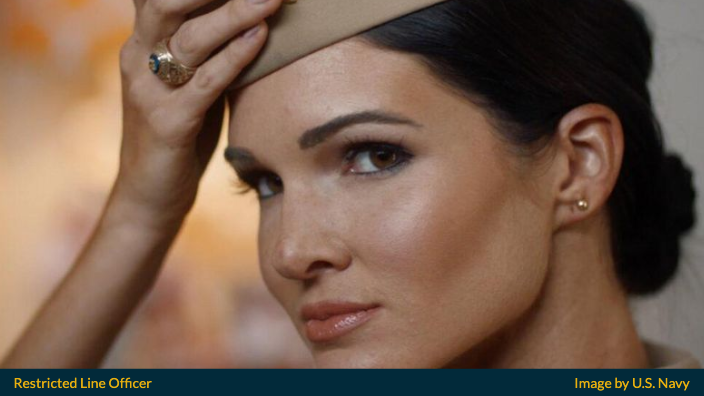Last Updated on March 4, 2024
This guide provides useful information about becoming a Restricted Line Officer in the Navy during Fiscal Year 2024.
As you will see, there are many officer programs in the Restricted Line.
Let us start with the descriptions.
What is a Restricted Line Officer in the Navy?
Navy Restricted Line Officers (RL) are those officers with warfighting specialties but do not carry direct strategic and tactical warfare responsibilities.

These highly skilled officers directly support the Unrestricted Line Officer community in maintaining our country’s superior naval power. They are indeed a large contributor to our elite fighting forces.
Therefore, RL Officers are actual line officers in the Regular Navy and the Naval Reserve, but they are restricted in their duties. But that does not mean your career path is also restricted as RL Officers typically have big career goals.
A Navy Restricted Line Officer is not qualified to command at sea war-fighting combatant units such as warships, submarines, aviation squadrons, SEAL teams, and also shore bases to include naval bases and naval air stations.
They are also not eligible to command higher echelon units, all the way to the Flag Officer level.
Navy Restricted Line Officer Jobs
In the Navy, there are several Restricted Line Officer designators that specialize in a wide variety of highly technical skills, which include:
- Aviation Maintenance Duty Officer (AMDO)
- Engineering Duty Officer (EDO)
- Naval Reactors Engineer (Nuclear)
- Nuclear Instructor
- Public Affairs Officer (PAO)
- Information Warfare Community (IWC)
Also Read: United States Navy and Marine Corps Officer Rank Structure
How To Become A Restricted Line Officer
If you want to be a Navy Restricted Line Officer, you should know that getting a commission in the United States Navy is very competitive.
You must first demonstrate that you meet the basic requirements for a commission in the United States Navy. As a result, apply as soon as a year before you graduate from college, as positions are limited and fill rapidly.
It is important to note that this is not the same as applying for a civilian management post since Naval Officers, especially Restricted Line Officers, have a direct impact on national security.
You should be aware that you will be held to a higher standard of performance and behavior than your civilian peers.
If this did not deflate you, you could be a good fit for this job since you have a strong sense of pride and integrity. You should make becoming a Naval Officer one of your top career options.
The basic information you will need to know before applying is provided below. More prerequisites will be added during the application process, but these will get you in the door.
For a more individualized evaluation and help, contact your local Navy Officer recruiter.
Basic Eligibility Requirements
Different jobs will have their own unique requirements, but these are the common ones for all Navy Restricted Line Officers:
1) Citizenship
You must be a United States citizen either by birth or naturalization.
2) Education
You must have at least a baccalaureate degree from a regionally accredited college or university. GPA requirement and degree major requirements differ in each RL officer job.
3) Physical
You must pass a physical and medical screening, typically conducted during the application process.
4) Aptitude
Navy Restricted Line Officer applicants must pass the Officer Aptitude Rating (OAR).
The most crucial requirement that you can fully control is your OAR score. It is the primary objective criteria upon which all applicants are compared against.
To maximize your chances of obtaining an exceptional OAR score, we only recommend this OAR Study Guide for your success. All others are mediocre at best.
Officer Candidate School (OCS)
All prospective Restricted Line Officers spend around 13 weeks in Newport, Rhode Island, attending Navy orientation training at the Officer Candidate School (OCS).
Navy OCS expands your professional understanding of the Navy and assists you in making the transition from civilian to military life.
You will find that academic classes, military training, and physical fitness training are all challenging and rigorous at OCS. You will need to be self-disciplined, physically fit, and have solid study habits since you will be working hard.
The academic course covers topics such as Naval operations, orientation, and administration. Other areas of study include naval history and the functions of strategic deterrence, sea control, force projection, and presence in controlling the seas during conflicts and sustaining freedom of the seas during peacetime.
Also Read: Navy OCS Guide for Officer Applicants
More Information
If you want more information about becoming a Navy Restricted Line Officer, the next logical step is to contact a Naval Officer Recruiter.
Let us start figuring out how you can benefit from the Navy – or if it is even a right fit for you.
You may also find more detailed information in this Quick Guide: How To Become a Naval Officer where you will find the actual step-by-step instructions toward this journey.


